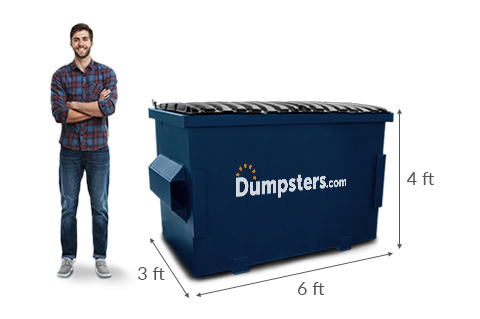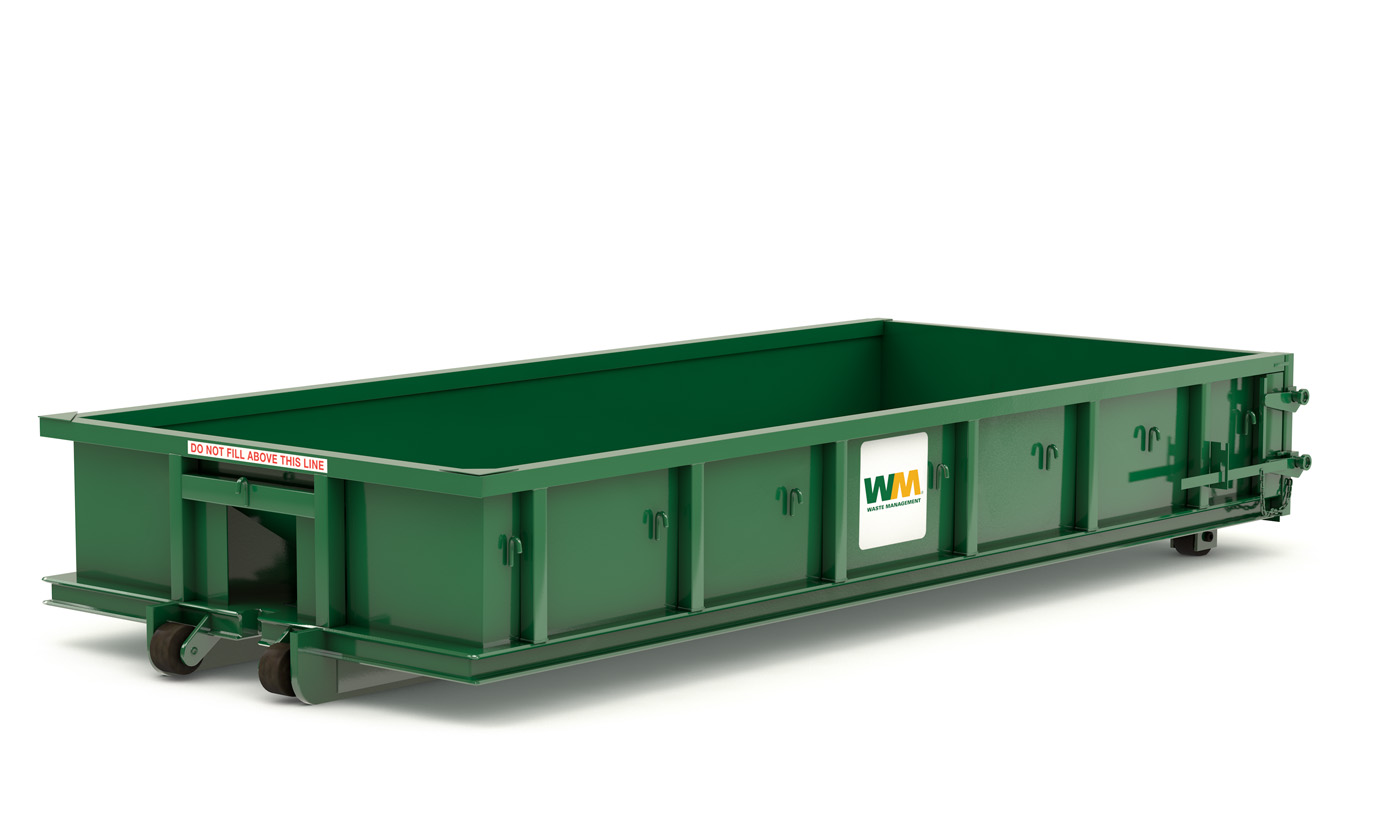To warranty a seamless dumpster rental experience, it's vital to review essential variables such as accurate dumpster dimension selection, ideal rental periods, and compliance with regional regulations Effective planning and sychronisation with the rental company can protect against expensive blunders and project delays. In addition, understanding approaches for efficient loading and unloading, harmful products administration, and optimizing rental experience can additionally make a significant distinction. By taking these insider ideas into account, you'll be well-appointed to navigate the dumpster rental procedure with confidence and effectiveness, and discover much more means to streamline your task and conserve beneficial time and resources.
Know Your Dumpster Dimension Options
A 10- or 20-yard dumpster is suitable for small to medium-sized projects, such http://piedmonttriad-dumpsters-42.mozellosite.com as restroom remodels or backyard cleanups.
For larger projects, like building or business improvements, a 30- or 40-yard dumpster is a lot more suitable.
Consider the kind and quantity of waste you'll be producing, as well as any regional regulations or limitations on dumpster dimension and placement.
Choose the Right Rental Period
Most construction or remodelling projects unfold over a certain duration, and it's necessary to integrate your dumpster rental period with this timeline. This ensures you have the dumpster on-site when you need it, and prevents unnecessary rental extensions or very early pickups.
To select the appropriate rental period, begin by estimating the period of your project. Consider factors like the scope of work, the number of employees entailed, and the amount of waste generated.
Be sensible about the task's speed and potential delays. A basic general rule is to include a few extra days to your approximated task duration to represent unexpected setbacks
When choosing your rental duration, you'll typically have alternatives ranging from a couple of days to a number of weeks or even months.
Be conscious of the rental business's policies relating to extensions or early terminations, as these may sustain additional fees By straightening your dumpster rental period with your project timeline, you'll lessen unneeded prices and guarantee a smooth, convenient experience
Understanding Regional Regulations
With a tactical rental period in place, it's equally crucial to consider the regulatory landscape controling dumpster rentals in your area. Stopping working to abide by local regulations can lead to penalties, charges, or even project delays. To prevent these concerns, research study the particular policies and policies in your community, region, or state.
Some essential facets to investigate include permit requirements, noise ordinances, and limitations on dumpster placement For instance, some locations may call for a permit to position a dumpster on the road or sidewalk, while others may have particular standards for dumpster dimension, product, or weight capacity.
Additionally, sound regulations may limit the hours throughout which dumpsters can be provided or grabbed. Comprehending these policies will assist you prepare your project effectively and stay clear of prospective setbacks.

Get the very best Dumpster Prices
Your task's spending plan takes center stage when it comes to safeguarding the best dumpster prices
It's essential to understand that prices can vary substantially depending upon the location, type of waste, and rental duration. To obtain the most effective offer, start by looking into local dumpster rental companies and contrasting their prices.
Be sure to ask about any additional fees, such as delivery, pickup, and disposal charges. Some firms may offer price cuts for long-term rentals or bulk orders, so it's worth inquiring about these as well.
Additionally, think about the size of the dumpster you require-- a smaller dumpster may be much more cost-efficient for smaller sized projects.
Be mindful of excess, as these can rapidly accumulate and blow your budget. By doing your due persistance and shopping around, you can locate a dumpster service that fits your project's demands and budget.
What to Ask Your Provider
The dumpster rental contract is a necessary record that describes the terms and conditions of the rental agreement, so it's important to meticulously review the fine print prior to signing on the dotted line.
To assurance a smooth rental experience, ask your carrier regarding their delivery and pick-up procedures, consisting of the particular dates and times for both. Clarify their policy on weight limits, excess costs, and any added fees for things like cushions or electronics.
It's likewise crucial to inquire about their debris disposal techniques and whether they recycle or donate any type of materials.
Additionally, ask about the service provider's liability insurance and what is covered in case of property damages or mishaps. Find out if they have any local authorizations or licenses needed for dumpster positioning, and who is in charge of obtaining them.
Preparing Your Property
It's additionally essential to mark a certain location for the dumpster placement, taking into account the proximity to your work site and the accessibility for the delivery truck
If you stay in a residential area, think about notifying your neighbors regarding the approaching shipment to avoid any potential disruptions.
By taking these safety measures, you can assure a smooth distribution procedure and avoid any type of added costs or complications.
Remember to evaluate your rental agreement to verify any details demands or limitations laid out by your provider.
Filling the Dumpster Efficiently
Proper dumpster positioning is only half the battle; the next action is to fill the dumpster efficiently to optimize its capability and lessen costs.
A well-filled dumpster not just conserves you money yet additionally lowers the environmental effect of waste disposal. To attain this, it's important to have a clear understanding of just how to load the dumpster correctly.

Here are some professional tips to help you load your dumpster like a pro:
- Start with bulky items: Put the largest and heaviest things, such as furnishings and appliances, at the end of the dumpster to create a stable base. Layer products thoughtfully: Alternative in between hefty and light things, and location smaller items in spaces to decrease vacant space. Break down large items: Take apart items like tables and shelves to fit extra into the dumpster. Fill to the top: Maximize the dumpster's capacity by loading it to the top, but prevent overloading. Keep it organized: Keep the dumpster organized by dividing various kinds of waste, making it much easier to throw away them properly.
Handling Dangerous Materials
When managing building and construction or restoration tasks, hazardous materials are usually inescapable, and their improper disposal can have severe environmental and health consequences.

As a liable task supervisor, it's important to identify and deal with dangerous materials appropriately to prevent contamination and guarantee a safe functioning environment Typical harmful products located on building sites consist of asbestos, lead-based paint, and solvents.
To take care of hazardous materials safely, different them from non-hazardous waste and take care of them through authorized facilities Validate that your dumpster rental company accepts unsafe materials and supplies the needed devices and training for correct handling.
Additionally, constantly adhere to local regulations and guidelines for hazardous waste disposal, and take into consideration hiring a professional for removal and disposal if you're unclear regarding the process.
Dealing With License Issues
Before starting a construction or restoration project, securing the essential permits is a critical action that can not be overlooked, as failing to do so can cause costly fines, job delays, and even lawful action.
Obtaining the needed permits warranties that your job follows local regulations, and it is very important to involve your dumpster rental provider in this process.
When taking care of license concerns, take into consideration the following:
- Research neighborhood policies and permit requirements Determine who is in charge of acquiring the permits (you or your dumpster rental service provider) Confirm that your dumpster rental carrier has the needed authorizations and licenses Allow adequate time for permit processing and approval Keep records of all permits and licenses for future reference
Maximizing Your Rental Experience
Optimizing your dumpster rental experience rests on efficient preparation and coordination By doing so, you can guarantee a seamless procedure that fulfills your details needs.
Start by recognizing the type and dimension of dumpster required for your project. This will aid you avoid unneeded prices and guarantee you have enough room for waste disposal.
Next, develop a clear timeline for delivery, usage, and pickup to prevent hold-ups and additional fees.
Communicate successfully with your rental company to review any certain requirements, such as unique licenses or equipment needs.
Additionally, mark a particular area for the dumpster to be put, guaranteeing very easy access and decreasing disturbances to your workflow.
Finally, develop a prepare for loading and discharging waste to make best use of performance and lower the danger of accidents.